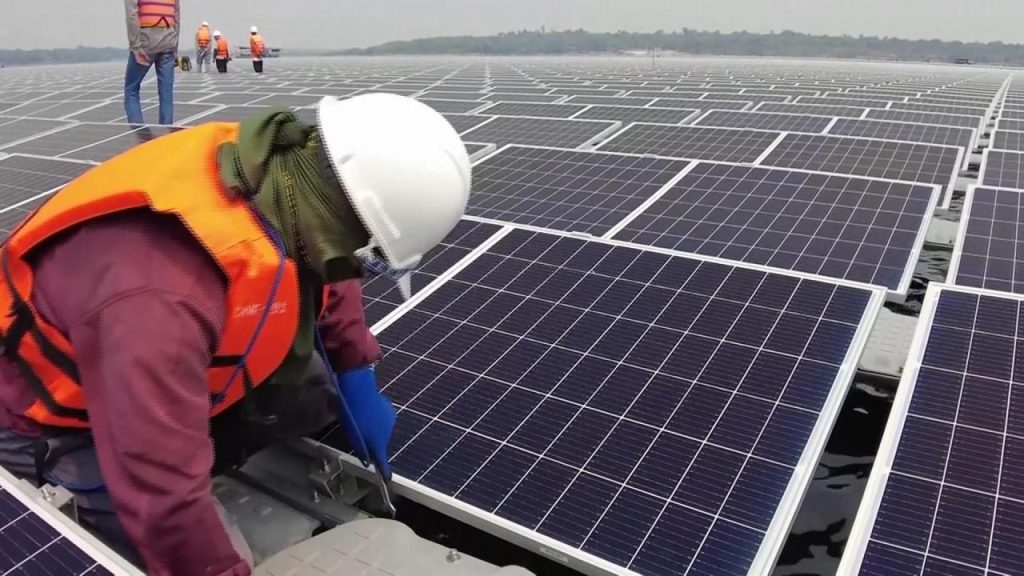
Raleigh homeowners Gary and Jane Smith are very concerned about climate change. They added a solar array in 2019 to help reduce their carbon footprint.
“There was a tax credit and a rebate from Duke, and it began to make financial sense to put the solar panels on,” Gary Smith said.
The panels frequently make more energy than the Smiths need. Duke buys it back at full retail price. It’s called net metering.
But state law says that has to change by 2027.
“The worst case scenario that we could potentially walk into is a complete erosion of this concept called net metering,” said Matt Abele with the NC Sustainable Energy Association (NCSEA). “Obviously, we would love to continue down the path of net metering as it currently exists here in North Carolina. But unfortunately, that’s just not the reality of how it’s playing out.”
NCSEA is one of the groups that negotiated the deal with Duke Energy late last year. It will reduce what the utility pays for rooftop solar power during most daylight hours. And it will add a minimum bill for homeowners with solar panels.
Abele says it also offers incentives, like rebates, and avoids even worse changes happening across the country. States like California, Nevada and Florida have cut what utilities pay for rooftop solar energy by up to 75 percent.
“We wanted to ensure that we didn’t walk into a scenario like that, where the customer has almost no sort of financial structure in place to justify installing a solar system,” Abele said.
The deal with Duke, he said, “positions us fairly close to where we currently are in North Carolina, and provides a structure for the numerous rooftop solar installers that we have across the state to continue to do business and continue to grow.”
Stew Miller sees the deal much differently. He’s one of several business owners intervening in the case before the NC Utilities Commission.
Miller owns YES Solar Solutions in Cary. It’s a 30-some person shop that designs and installs rooftop solar arrays. He says the proposed deal would cut the value of his product by 25 to 30 percent.
“Frankly, I think it’s going to cause a lot of people to doubt whether solar is the right avenue for them to take in the future,” Miller said. “I think it’s unfair to people that want to invest and do the right thing for the climate.”
He says the deal lacks a legally required prerequisite. House Bill 589, which became law in 2017, ordered changes to net metering, but only after conducting a study of the costs and benefits of it.
Miller said Duke did its own study, which focused on the costs. He said the public staff of the Utility Commission should do its own, impartial study of both aspects before the deal is allowed to move ahead.
“I think the rationale is that Duke feels that people with solar systems benefit from using the grid, but don’t pay their fair share for it. It’s called cost-shifting,” Miller said. “I’ve never understood the rationale.”
The Smiths estimated their array would pay for itself in 10 years. Under the proposed rates, they say it would take 18 years. The panels only last 25 years. And, Gary Smith noted, a lot of the rebates and tax incentives that made solar affordable a few years ago are beginning to dwindle.
“I think you’re getting to the point where maybe solar won’t pay for itself in 25 years,” Smith said.
Smith sits on a Duke Energy stakeholder committee on carbon reduction. He gives the utility credit for making progress toward its goals of reducing greenhouse gas emissions.
But, Smith added, “We need to do everything we can to get people to move their house out of high carbon use. And this current plan is going to do just the opposite. It’s going to make it more difficult.”
Asked why the changes are needed in the first place, Duke spokesman Randy Wheeless sent a statement.
“Duke Energy’s proposed changes to net metering in North Carolina do not hurt rooftop solar customers. We will compensate solar owners for their power back to the grid at rates that match the value of power to the company at that given time,” Wheeless wrote in part, referring to the proposed switch to time-of-use rates rather than full retail for rooftop solar power.
“Duke Energy is committed to finding collaborative paths forward to help with the clean-energy transition and carbon-reduction goals in the Carolinas,” Wheeless added. “Our settlement with many leading solar groups ensures fair and reasonable treatment for all customers whether they choose to install solar or not.”
State Attorney General Josh Stein’s office has filed a brief with the North Carolina Utilities Commission, recommending that the proposal be delayed until the required study can be completed and put into the context of the state’s climate change plan. The commission could take up the proposal next month.
























